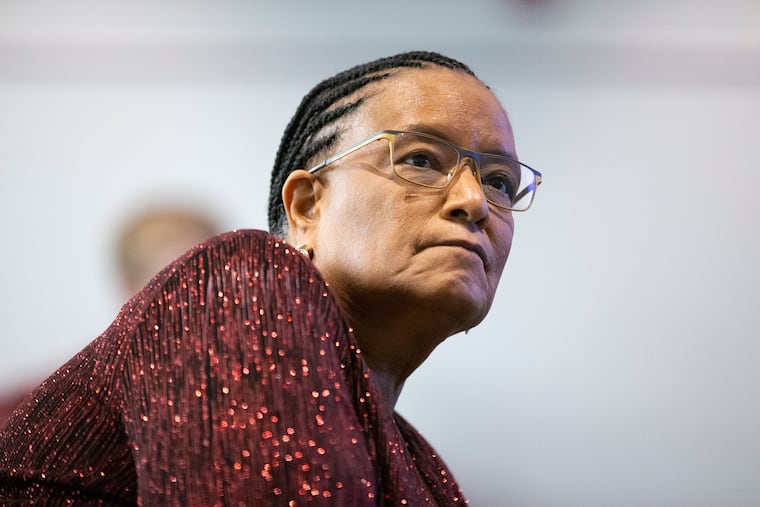Temple hosts symposium featuring women who cracked the ‘fortress’ of a male-dominated sports culture
On Friday, the university hosted its first-ever Women in Sports Media symposium featuring some of the biggest names in sports journalism

Students and faculty packed into Mitten Hall on Temple University’s campus recently to get a glimpse of three sports media giants — Claire Smith, Melissa Ludke and Lisa Saxon — sharing their stories of covering Major League Baseball as women in the 1980s.
Saxon, who covered the Los Angeles Angels for the Los Angeles Daily News , spoke candidly about her contentious interactions with baseball superstar Reggie Jackson.
» READ MORE: Temple picked up its first conference win of the season on its homecoming day against Tulsa
“[Jackson] told me he wished I was dead many times, would scream and curse at me for no reason,” Saxon said. “I’d be talking to [for Angels manager Gene] Mauch, and [Jackson would] ask me, ‘Do you even look at yourself before you leave the house? And you still wore that?’”
Temple’s Klein College of Media and Communication, in conjunction with its Claire Smith Center for Sports Media, hosted its first-ever Women in Sports Media symposium featuring some of the biggest names in sports journalism — including Inquirer writer Gina Mizell and editor Isabella DiAmore.
The Mitten Hall audience was quiet most of the day as legends in the sports media industry shared their struggles breaking into a male-dominated industry. But it was at its quietest when Smith showed a YouTube video called “Mean Tweets,” which included women reporters being read actual replies to their tweets by random men.
The men in the video didn’t write the tweets themselves, but they could barely get the words out that were on the screen in front of them. Words that progressively got more vulgar as the video went on.
“And now just think about who owns Twitter [now known as X] now,” said Mizell, the Inquirer’s 76ers beat reporter and a panelist at the event. “That’s what I have to say about that.”
Doris Burke, who was awarded the first-ever Trailblazer award, spoke alongside Los Angeles Dodgers legend Steve Garvey as the event’s two main distinguished guests.
Smith, who said she nearly fainted two years ago when Temple’s Klein College of Media and Communication dean David Boardman told her he wanted to name the school’s sports media center after her, was barred from entering the San Diego Padres clubhouse as a reporter for the Hartford Courant in 1984.
At the time, Garvey was on the Padres and sat with Smith outside the clubhouse to protest how team officials treated her. Garvey remained close with Smith over the years and has made noise in the political sphere following his retirement from baseball. He is currently running as a Republican for a United States Senate seat in California.
On Friday, he was awarded the first-ever Claire Smith Allyship Award for continued support of women in sports media.
» READ MORE: From 2022: Read stories from the Inquirer's award-winning Title IX series
In June, Burke became the first woman to serve as an announcer for a major network during a professional sports championship. But with growth comes more critics, especially as a woman in sports media, Burke told the audience.
“If I screw up, it’s not like when everyone else screws up,” Burke added.
Also shown to the audience was ESPN’s “Let Them Wear Towels,” a documentary highlighting Ludke’s lawsuit that allowed her to finally enter Major League Baseball locker rooms. For years, players and coaches claimed they felt uncomfortable undressing with women in the locker room, but Smith believes that was never the real reason.
“It was really about not wanting women to be a part of a game that was considered a fortress for men,” Smith said.